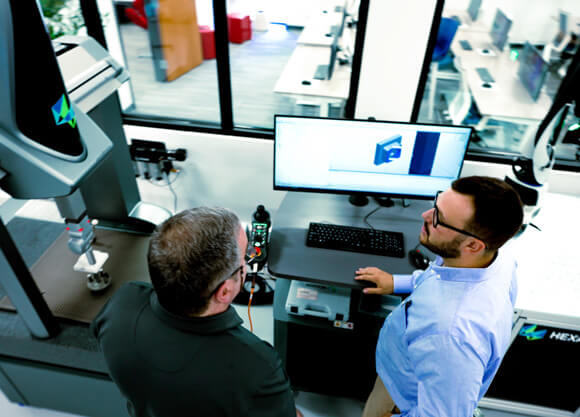Program Overview

Model-Based Definition (MBD), a method of defining a product using a 3D digital model rather than traditional 2D drawings, is a critical part of the digital transformation of the manufacturing sector. Adopting MBD is more than a technical upgrade. It represents a strategic shift in how your organization designs, communicates and manufactures.
This course will provide a structured approach for small and mid-sized manufacturers to transition adopting new tools, and processes, while ensuring buy-in from all stakeholders. The course features experiential, application-based learning intentionally designed to build connections between participants, thus creating a broader network across regional manufacturers.
Benefits of Model-Based Definition:
-
Increased Efficiency and Faster Speed to Market
-
Improved Quality and Reduced Errors
-
Optimized Manufacturing and Cost Savings
-
Compliance with DoD-required Standard
You should attend this program if:
-
You are the owner of a manufacturing company
-
You are a senior leader, manager or supervisor



